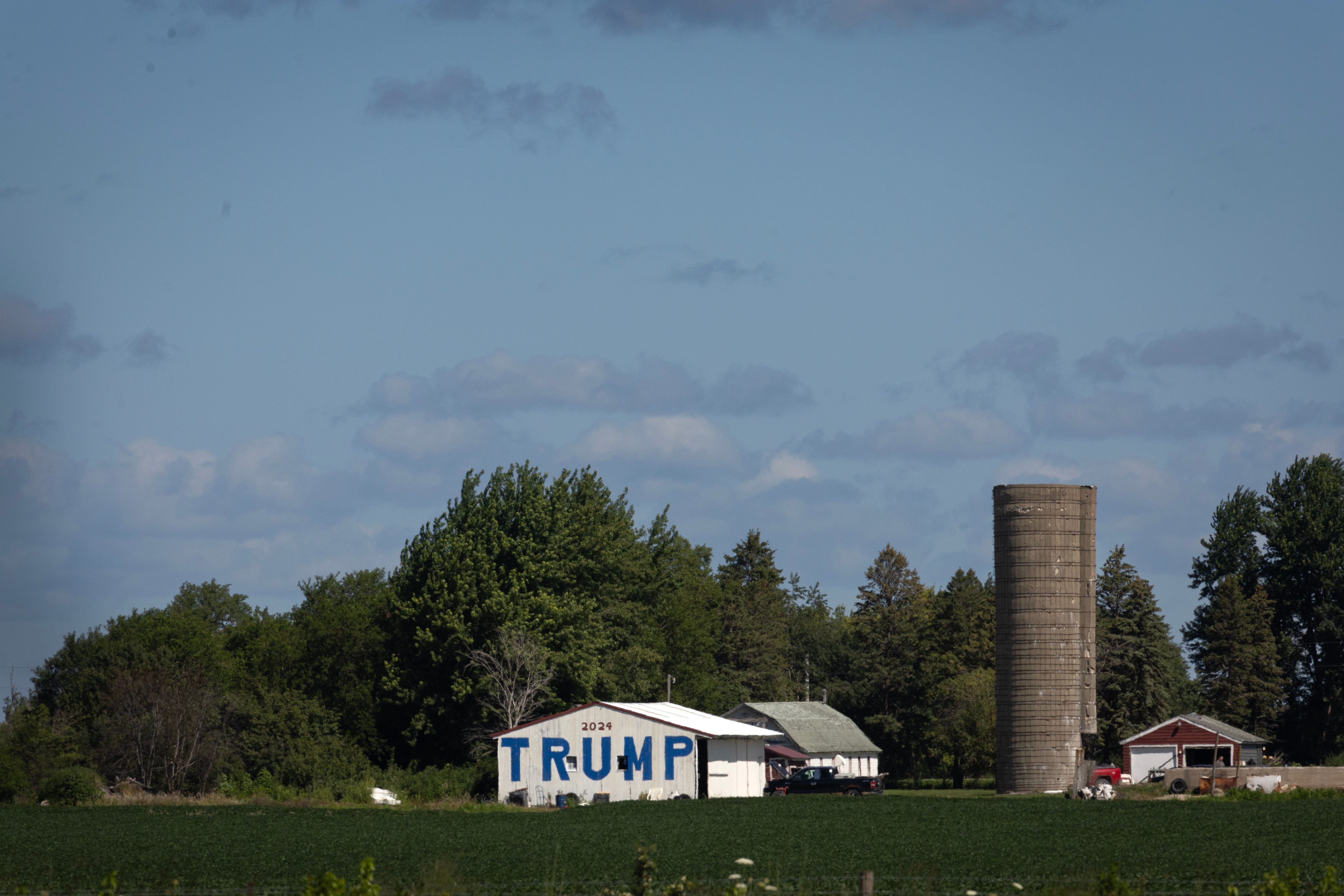Ann Selzer explains why her very wrong Iowa poll may have helped Trump
Numerous prominent pre-election forecasts missed result as Trump swept to victory
Your support helps us to tell the story
From reproductive rights to climate change to Big Tech, The Independent is on the ground when the story is developing. Whether it's investigating the financials of Elon Musk's pro-Trump PAC or producing our latest documentary, 'The A Word', which shines a light on the American women fighting for reproductive rights, we know how important it is to parse out the facts from the messaging.
At such a critical moment in US history, we need reporters on the ground. Your donation allows us to keep sending journalists to speak to both sides of the story.
The Independent is trusted by Americans across the entire political spectrum. And unlike many other quality news outlets, we choose not to lock Americans out of our reporting and analysis with paywalls. We believe quality journalism should be available to everyone, paid for by those who can afford it.
Your support makes all the difference.Ann Selzer’s much-watch Iowa poll, which showed Kamala Harris heading into Election Day with a surprise three-point lead, was one of numerous election forecasts that ultimately failed to predict the result in 2024.
Trump, who openly mocked the poll during late rallies, appears to have won the state by more than 10 percent with 95 percent of the votes counted.
In a post-mortem on Thursday, Selzer explained how she’s thinking through the discrepancy between what actually happened and what was forecast in the Des Moines Register / Mediacom Iowa poll.
“My philosophy in public opinion research is to take my best shot at revealing the truth of a future event, in this case Election Day,” she wrote. “Without fear or favor, we used the same method as the final poll this year to show a healthy Trump lead in both 2020 and 2016. Those turned out to capture the mood of the electorate reasonably well, though both took fire from Iowans who doubted the findings could be true.”
“In response to a critique that I ‘manipulated’ the data, or had been paid (by some anonymous source, presumably on the Democratic side), or that I was exercising psyops or some sort of voter suppression: I told more than one news outlet that the findings from this last poll could actually energize and activate Republican voters who thought they would likely coast to victory,” she added. “Maybe that’s what happened.”
The Iowa poll wasn’t the only one that missed the mark.

Numerous pre-election forecasts showed Harris with a slight but notable lead, despite voting results suggesting Trump has both dominated the Electoral College and will win a slight victory in the popular vote, the first Republican to do so in 20 years.
The gap between polls and reality has led to a mix of in-fighting and reflection.
Pollster and historian Allan Lichtman, the so-called election “Nostradamus” whose non-statistical “13 keys” prediction method has correctly called 9 of 10 elections between 1984 and 2020, went after stats guru Nate Silver over his own 50/50 prediction.
“Unlike Nate Silver, who will try to squirm out of why he didn’t see the election coming, I admit that I was wrong,” Lichtman wrote on X.
“Silver’s last call had Harris very marginally ahead. He certainly was not predicting a Trump Electoral College landslide,” Lichtman wrote on X. “And he said don’t trust my gut. So once again he can’t be wrong no matter what the outcome.”
Silver’s statistical models showed Harris and Trump in a virtual coin flip, with the Democrat coming out on top in 50.015 percent of 80,000 simulations.
“The race is literally closer than a coin flip: empirically, heads wins 50.5 percent of the time, more than Harris’s 50.015 percent,” Silver wrote on his Substack page on Tuesday morning.
“When I say the odds in this year’s presidential race are about as close as you can possibly get to 50/50, I’m not exaggerating,” he said.
Some pollsters argue that traditional methods failed to reach Trump’s constituencies accurately.
James Johnson, the founder of J.L. Partners, one of the few polling firms to accurately predict Donald Trump’s victory in the popular vote, told Newsweek, "The key thing is people made the same mistakes they did in 2016.”
They understated the Trump voter who is less likely to be engaged politically, and crucially, more likely to be busy, not spending 20 minutes talking to pollsters… people working a pretty common job or, as the case of many Hispanic voters, juggling two or three jobs at a time,” he added.

Join our commenting forum
Join thought-provoking conversations, follow other Independent readers and see their replies
Comments